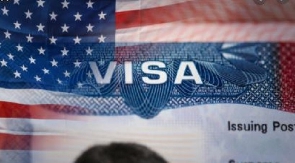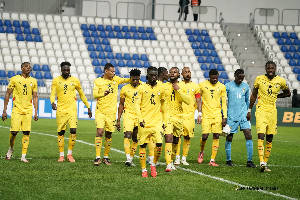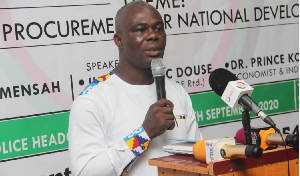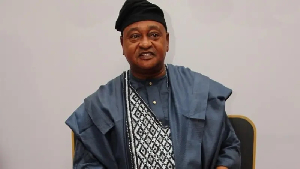A United States Government Report on Visa Overstays for the year 2023 shows Ghana is ahead of Nigeria in abuse of B1/B2 and F, M, and J Non-Immigrant Visas for the period October 2022 to September 2023.
The latest report sighted by MyNewsGh.com breaks down the overstay rates to provide a better picture of those who abused their visas to remain in the United States beyond their period of admission and for whom there is no identifiable evidence of a departure, an extension of the period of admission, or transition to another immigration status.
Other categories of overstays overstayed their visa (beyond the permitted 6 months or less) but eventually left after the overstay, all of which is captured in the latest report.
Overall, at the end of Financial Year 2023, there were 510,363 Suspected In-Country Overstays, which represents 1.31% of expected departures, and there were 54,792 Out-of-Country Overstays, representing 0.14% of expected departures.
Ghana B1/B2, FMJ Visa Overstay Rate
In 2023, according to the report, 25,454 B1B2 visas were issued to Ghanaians, out of which 1,910 overstayed, representing a 7.50% rate of abuse.
This category refers to Nonimmigrant Ghanaians Admitted to the United States for Business or Pleasure via Air and Sea Point of Entry.
For other overstay Rates for Nonimmigrant Ghanaians Admitted to the US as Students and Exchange Visitors (F, M, J), the figures show an abuse rate of 21% as 2,559 visas were issued with 537 of the number overstaying and remaining in the US.
For some perspective, in 2019, before the pandemic, Ghanaians received 28,844 B1B2 visas, out of which 1,723 overstayed, representing a 5.09% abuse rate, compared to 2018, when Ghanaians received 23,486 B1B2 Visas and 875 overstayed, representing 3.73%.
The 2019 overstay rate for student visas was 12.7%, as 2,762 visas were issued and 352 overstayed.
Nigeria and the rest of Africa Visa Overstay Rates
In 2023, Nigerians had 84,051 B1B2 visas issued, out of which 6,000 Nigerians overstayed, representing 7.14% compared to Ghana’s 7.50%.
Nigerian students and Exchange visitors had 7,556 FMJ visas issued in 2023, out of which 1,179, representing 15.60%, overstayed compared to Ghana’s 21% overstay rate for the same visa category.
Before the pandemic in 2019, Nigeria had 177,835 B1B2 visas issued, out of which 17,566, representing 9.88%, refused to return. Student visas for the same year for Nigerians stood at 9,336, but 1,254, or 13.43%, refused to return.
From the data, Ghanaians had a relatively better US visa record than Nigerians before the pandemic.
For the 2023 year, Mali had a visa abuse rate of 5.27%, Ivory Coast at 7.48%, Togo at 19%, Burkina Faso at 12.13%; Niger at 7.41%, Uganda and Sierra Leone at 8.4% and 15.4% respectively.
An overstay is defined as a nonimmigrant who was lawfully admitted to the United States but remained in the United States beyond the authorized period of admission. This can be a fixed period or for the duration of a certain activity, such as the period during which a student is pursuing a full course of study or any authorized technical/practical training program.
US Customs and Border Protection identifies two types of overstays: 1) individuals for whom no departure was recorded (Suspected In-Country Overstays) and 2) individuals whose departure was recorded after their authorized period of admission expired (Out-of-Country Overstays).
According to the report, determining lawful status requires more than matching entry and exit data.
For example, a person may receive a six-month period of admission upon entry and then subsequently apply for and receive an extension for the period of admission of up to six months from US Citizenship and Immigration Services.
Identifying extensions, changes, or adjustments of status are necessary steps to determine whether a person has overstayed their authorized period of admission.
The report was therefore generated with improvements to data analysis in an automated fashion to better account for these changes.
General News of Monday, 18 November 2024
Source: mynewsgh.com













